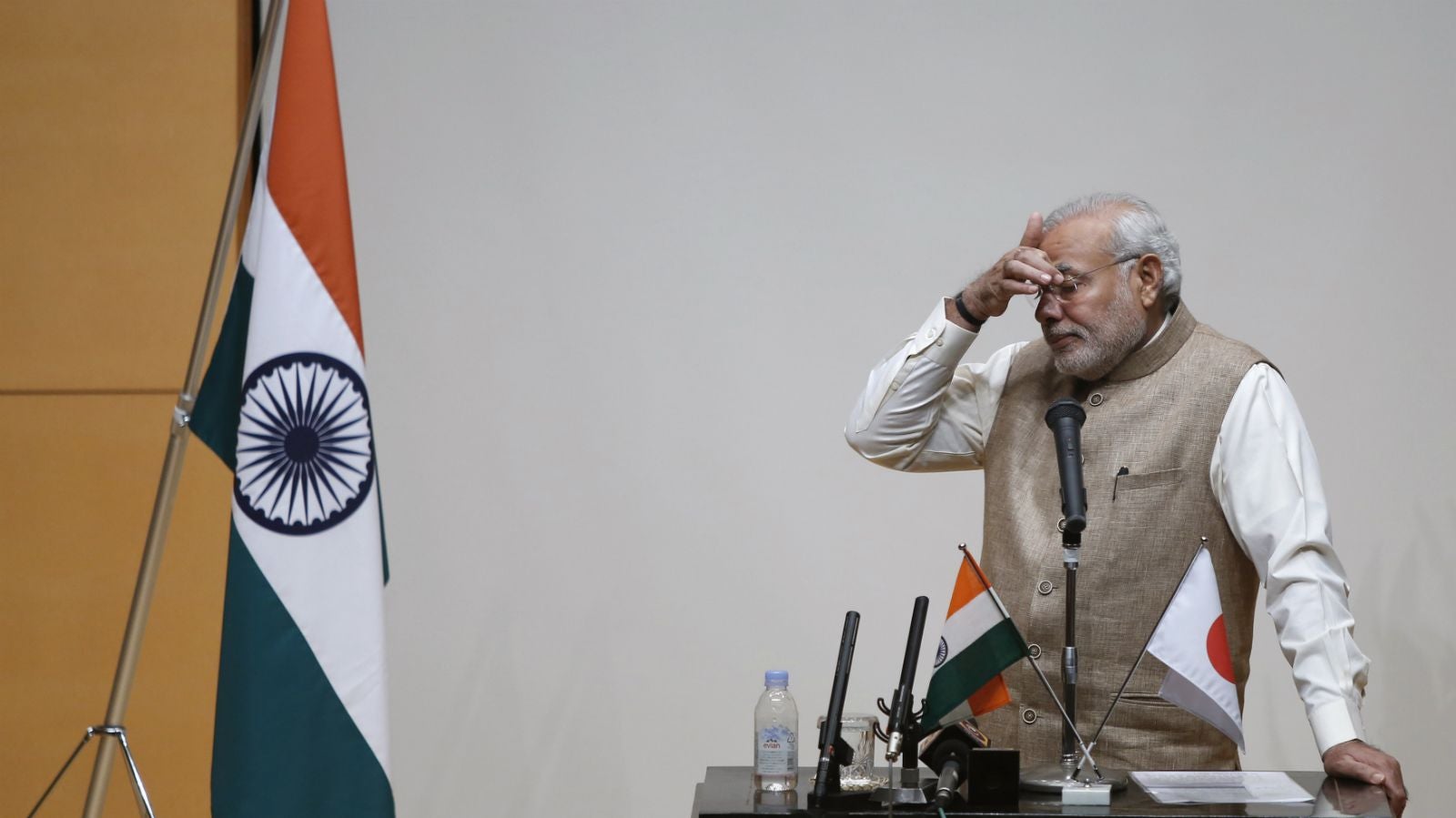In his first interview after taking office, Modi failed to dazzle
Communication is one of Narendra Modi’s strengths. But in his first interview as India’s prime minister, it didn’t shine through.


Communication is one of Narendra Modi’s strengths. But in his first interview as India’s prime minister, it didn’t shine through.
After a difficult week that saw much diplomatic wrangling as Chinese president Xi Jinping came visiting, Modi’s interview made front page headlines even before it was actually telecast.
Coming days before his trip to the United States, Modi chose to speak to CNN’s Fareed Zakaria (also a contributing editor to The Atlantic and Quartz). And short promotional clips of the conversation, including a particular comment on Indian Muslims, were immediately picked up by the Indian press.
The complete interview, however, failed to impress. Partly (and especially for Indian audiences) because it was dubbed in English, shadowing Modi’s sharp Hindi skills. And partly because the prime minister’s answers on India’s foreign policy seemed evasive and incomplete.
Zakaria began by asking if Modi thought India could replicate China’s impressive economic growth. “India does not need to become anything else. India must become only India,” Modi replied, before explaining how the two Asian nations had fallen and risen in tandem.
Continuing with China, Zakaria later questioned if Modi was concerned about Beijing’s expansionist behaviour in the South China Sea.
“China is also a country with an ancient cultural heritage. Look at how it has focused on economic development. It’s hardly the sign of a country that wants to be isolated. It wants to stay connected,” Modi said.
“That is why we should have trust in China’s understanding and have faith that it would accept global laws and will play its role in cooperating and moving forward,” the prime minister added.
Of course, this interview was recorded before Xi’s visit to India and the coinciding standoff between Indian and Chinese troops in Jammu and Kashmir. Nonetheless, Modi’s simplistic assessment of Chinese policy seems contradictory to how an increasingly aggressive Beijing has recently behaved in its neighbourhood.
On the possibility of a genuine strategic alliance between the United States and India, Modi replied in the affirmative and then argued that the bedrock of the relationship hinged on the fact that “Indians and Americans have coexistence in their natural temperament.” Pressed on whether he thought Washington was looking to upgrade its relationship with India, Modi didn’t talk specifics.
“Relations between India and America should not be seen within the limits of just Delhi and Washington. It’s a much larger sphere,” he said. “The good thing is that the mood of both Delhi and Washington is in harmony with this understanding.”
But it was perhaps Modi’s reply to a straightforward question on Russia’s actions in Ukraine that was the most confounding. Zakaria asked him how he viewed Russia’s annexation of Crimea.
“Firstly, whatever happened there, innocent people died in a plane accident. That’s very saddening. These are not good things for humanity in this age,” Modi answered first. Ukraine is a difficult subject for India, given New Delhi’s deep ties with Russia.
“There is a saying in India that the person who should throw a stone first is the person who has not committed any sins. In the world right now, a lot of people want to give advice. But look within them, and they too have sinned in some way,” he added. Who he was alluding to remains unclear.
“Ultimately, India’s view point is that efforts need to be made to sit together and talk, and to resolve problems in an ongoing process,” Modi said finally, though his own government has refused to follow that policy with Pakistan.
Modi may be an astute media manager domestically, but his first big interview after taking office contributed little to remaking his image as a global leader of substance.